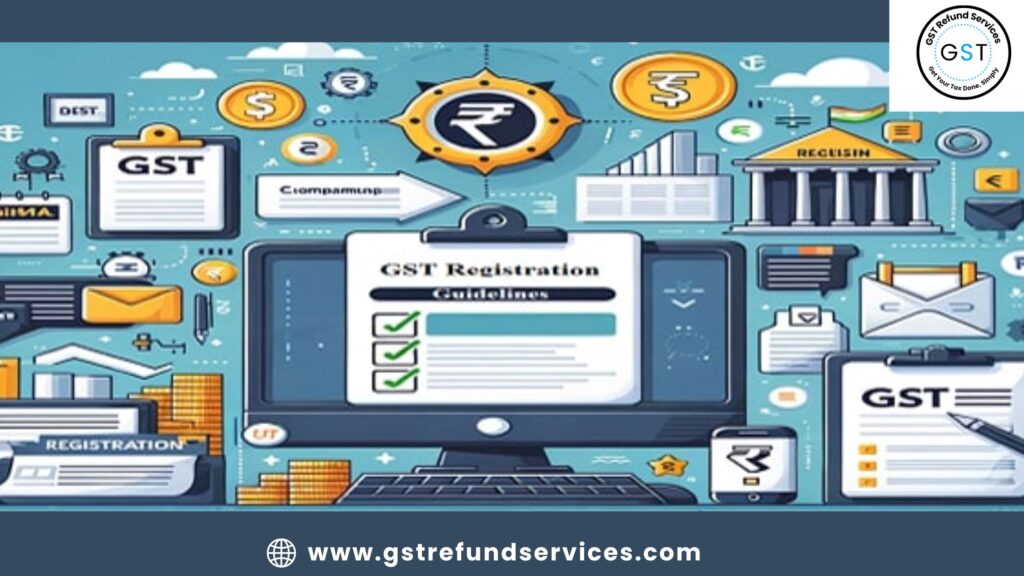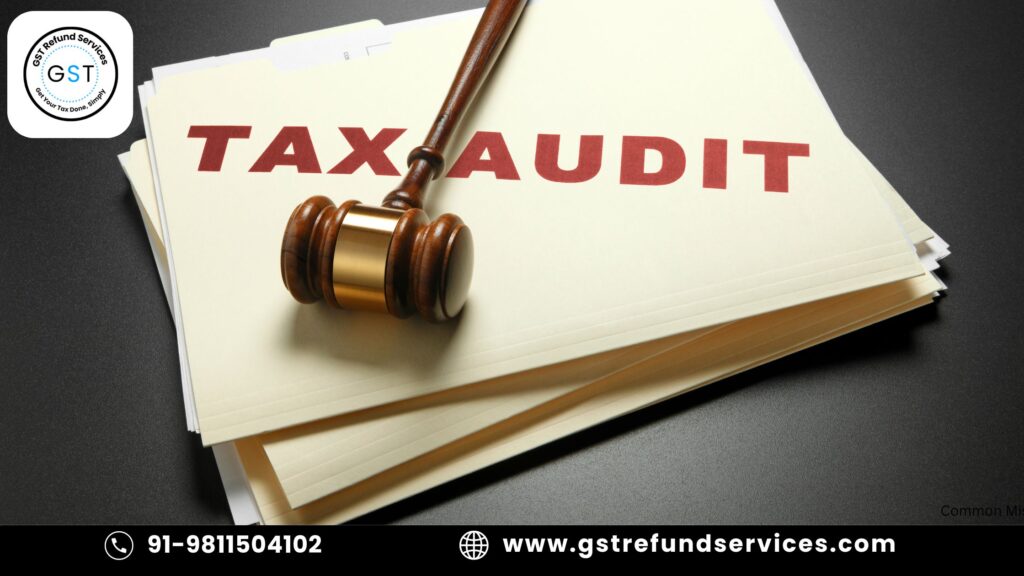
GST (Goods and Services Tax) has grown into a vital element of business operations in India’s continually shifting tax structure. Understanding the GST registration processes and complying with legislation is critical for entrepreneurs, partnerships, and LLPs. In this class, we break down key components to make GST registration more straightforward for your business.
1. GST registration for proprietorship
If you run a company that is solely owned, registering for GST may seem difficult, but it ought not to be. Everything can be performed online in a few steps. Our competent GST specialists can walk you through all of the steps, ensuring that the organization is fully compliant with all the necessary regulations.
Tip: Before applying, ensure that your firm qualifies for GST registration based on turnover thresholds. Sole proprietors can easily register under GST, and we’ll help you avoid common mistakes during the application process.
2. TAN & MSME Registration
If you’re the one in charge of collecting and collecting taxes at the source, you must get a Tax Deduction Account Number (TAN). Individuals or corporations who deduct or collect tax at the source are granted a TAN, which is a unique number. Moreover, MSME (Micro, Small & Medium Enterprises) GST registration offers numerous benefits to businesses, but individuals cannot apply. However, proprietorships, partnerships, corporations, trusts, and societies are eligible for MSME registration. This can lead to easier access to credit, government subsidies, and protection under various schemes.
Tip: Both TAN and MSME registrations provide substantial legal advantages, so ensure you take the necessary steps for your business.
3. One FY GST Compliance
Compliance with GST registration specifications is necessary for preserving a favorable relationship with the tax authority. The government-implemented GST compliance rating system examines what level of compliance your business is. This score is determined in large part by the correct submission of monthly and annual applications.
Tip: Continue track of milestones and file your GST returns on time to maintain an outstanding compliance assessment, which can assist you gain confidence with other businesses.
4. GST Incorporation of Partnerships with LLPs
Partnership entities and limited liability partnerships (LLPs) that supply items that are subject to GST must register. Depending on what kind of their business and staff turnover, registration is often needed.
Tip: Ensure that your partnership or LLP is compliant with the GST regulations, as failure to do so can result in penalties or fines. If you’re unsure whether your turnover requires GST registration, consult a professional for guidance.
5. MSME Registration for Businesses
MSME registration provides numerous benefits, such as easier access to loans, subsidies, and protection under government schemes. While individuals are not eligible for MSME registration, proprietorships, partnerships, corporations, and societies with investments can apply.
Tip: MSME status offers valuable financial support and growth opportunities for small and medium enterprises, so consider registering your business.
6. GST for Companies
Organizations need to sign up for GST if their GST income is above a certain criterion. This also applies to non-profit organizations if they engage in certain activities like providing taxi or limousine services (such as Uber or Ola) regardless of turnover.
Tip: Always monitor your turnover closely to determine when GST registration is required. Even if you’re a non-profit, certain services will make GST registration mandatory.
7. Drafting and Filing the IEC Application
If the organization undertakes import-export activities, you must obtain an Importer Exporter Code (IEC). The application process is simple and may be done online. Once the required documents are submitted, you can generate your IEC certificate directly from the Directorate General of Foreign Trade (DGFT) portal.
Tip: Make sure all documents are properly uploaded and verified to avoid delays in the application process. The DGFT portal now supports digital signatures, making it even easier to apply.
8. Authorization for Tax and Compliance Processes
Authorization is crucial in business management, especially in terms of information security and access control. Whether you’re managing a GST account or handling sensitive financial data, having proper authorization protocols in place helps secure your business from potential risks.
Tip: Ensure your team members have the appropriate access rights and understand their roles in maintaining tax compliance.
9. Filing on the DGFT Portal
The inclusion of support for generic digital signatures has made it easier to file for GST or IEC through the Directorate General of Foreign Trade (DGFT) portal. This tool streamlines the filing process for both people and businesses, resulting in faster, more secure applications.
Tip: Use digital signatures to speed up the filing process and ensure that your application is filed securely.
Streamlined GST and Business Compliance Assistance
Navigating GST registration and compliance can be difficult, but with the appropriate help and advice, it can be a smooth procedure. Understanding the complexities of GST, TAN, MSME, and IEC applications will help you stay compliant and position your firm for growth, whether you are a sole proprietor, partnership, LLP, or corporation. If you need assistance, our skilled team is available to help you with the entire process.


